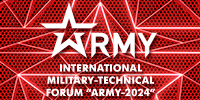Russia is to determine what scientific trends will be of priority for the country and allow Russia to become one of the leading technological countries by 2035.
By Sergey Kovalchenkov
Russian Mountains
The National Technological Initiative (NTI) as one of priorities of the national policy was enunciated by Russian president Vladimir Putin in his Address to the Federal Assembly on December 4, 2014. This is a program of measures for generation of conceptually new markets and creation of conditions for global technological leadership of Russia by 2035.
A need for generation of NTI does not require any ample clarifications. It is enough to say that after losing a considerable part of its high-technology industrial complex and abruptly reducing governmental support to scientific researches in the early nineties, Russia lost a lot.
Our country was turned into a state, which depends on situation of the hydrocarbon market and on delivery of technologies, equipment, consumer goods, including vital ones, from aboard. Considerable part of the domestic market was handed over to foreign manufacturers: household appliances, medical equipment, medicines, etc. Active result-oriented industrial policy was replaced with the policy of institutional reforms and attraction of foreign manufacturers and companies to ensure “screwdriver” assembly.
Simply speaking, Russia was turned from a leading technological state into technologically dependant country, which affects both daily activities and defence capability of the country.
And it is NTI that is to turn the tide.
Science Discipline
According to experts, this program of measures shall include a number of functional components. For example Mr. Nikolay Testoyedov, Director General of JSC Academician M. F. Reshetnev Information Satellite Systems, warns that during implementation of the program we should not lose a more or less effective tool for implementation of scientific and technological priorities, i.e., federal target programs.
At the same time, Mr. Nikolay Kolchanov, Director of the Institute of Cytology and Genetics of Siberian Branch of RAS, emphasizes the fact that during strategic planning of the science it is advisable to concentrate on full-cycle projects – from generation of ideas in a research laboratory to “final result replicated on industrial level”, in which fundamental and applied sciences are tied together.
In the whole, approach to NTI is articulated by experts of the Agency for Strategic Initiatives as follows:
“We have made a lot of mistakes in innovation management. A part of these mistakes could not be avoided since we just had got no experience in building of such control models, we often thoughtlessly transferred western institutions and memes to Russia, which perfectly worked in the USA but ineffective in the Russian conditions. Now, having accumulated the experience, we realize what is workable and what is not.
At the same time, we cannot return back to the USSR, we believe that restoration of the Soviet system is counterproductive; the command and administration system does not exist anymore. Even the USSR, which used to be a superpower and have human resources amounted to 270 million humans, failed as a result of scientific and technological race. There are no grounds to believe that in the second decade of the 21st century Russia, having 143 million human potential, will be able to restore the Soviet system, which is not too effective. It will be a direct way towards North Korea.
To establish a new innovation management system we shall pass between Scylla of the Soviet administration and command system and Charybdis of the American model of venture economics.
NTI does not assume pumping trillions of rubles into projects lobbied. We are not planning to construct monumental structures or conduct propaganda by means of central TV. We advise to allocate future markets and form coalitions aiming to capture those markets. The rest will follow”.
Vectors and Goals
Let us right now note that the range of priorities for development of science and technologies, in which one can gain the lead, is seriously restricted for Russia. Nevertheless, discussions around possible niches do nor die off.
So, Aleksander Dynkin, Director of the Institute of World Economy and International Relations of RAS, believes that it is important to ensure scientific and technological breakthrough in the sphere of energy efficiency and replacement of fossil fuels with renewable resources. Andrey Lisitsa, Deputy Director of V. N. Orekhovich Institute of Biomedical Chemistry, insists that “health-saving” technologies shall be included into the priorities. While Evgeny Kablov, Director General of the All-Russian Scientific-Research Institute of Aviation Materials, places his stake on digital (additive) technologies and creation of new-generation materials and production facilities on their basis with minimal environmental impact.
Meanwhile, at the June session of the Presidium of the Council for Economic Modernization and Innovative Development under the President of the Russian Federation Dmitry Livanov, Minister of Education and Science of the Russian Federation, suggested to generate several research fronts connected to development of neurotechnologies, advanced production technologies, quantum technologies and photonics.
According to the Minister, NTI “road maps” shall include justification for selection of perspective markets and groups of technologies, target parameters of the markets by 2035, technological, resource, personnel and infrastructural supports required for success, as well as institutional transformations and expected results of the work.
Foresight and development of the “road maps” are suggested to be assigned to the Agency for Strategic Initiatives, while studies of their projects and approval with federal executive authorities will be allocated to a special working group of the Council for economy modernization. Coordination of research, development and technological aspects of implementation of the “road maps” is recommended to be secured to the Russian Ministry of Education and Science; function of project office of the initiative will be assigned to the Russian Venture Company, while general management of NTI will be assigned to the Presidium of the Executive Council.
Fly in the Ointment
Editorial staff of the New Defence Order in its response is not ready to share the optimistic approach of executors of the president's directive and ideologists of the planned technological breakthrough. For example, due to the fact that even the first steps in the project are taken with a noticeable delay. So, in March, Dmitry Medvedev promised that the program would appear by summer. Nevertheless, formation of the inter-agency working group headed by Andrey Belousov, Aide to the President, and Arkady Dvorkovich, Deputy Prime Minister, was launched only in June.
Of course, in general all those are minor issues.
It is much more important, that according to the last data presented by the Federal State Statistics Service of the Russian Federation only every tenth industrial company demonstrates its innovative activity. In most cases domestic companies are not interested in modernization of production facilities since their positions on the market are determined rather by their proximity to administrative and raw material resources than to their capability of innovation.
To ensure an innovative breakthrough the government shall change its approach to management of economy in whole rather than to implementation of technologies.








